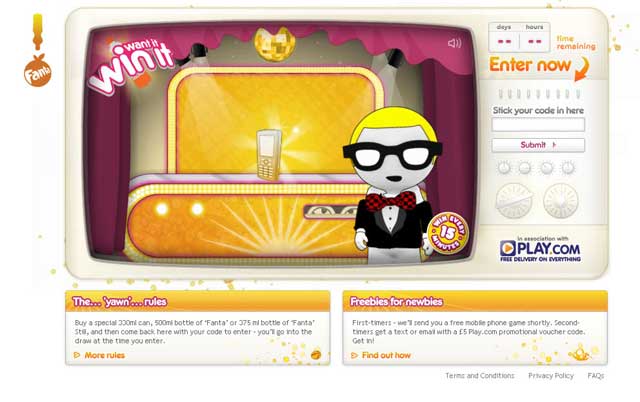Online junk-food ads 'targeting children'

Your support helps us to tell the story
From reproductive rights to climate change to Big Tech, The Independent is on the ground when the story is developing. Whether it's investigating the financials of Elon Musk's pro-Trump PAC or producing our latest documentary, 'The A Word', which shines a light on the American women fighting for reproductive rights, we know how important it is to parse out the facts from the messaging.
At such a critical moment in US history, we need reporters on the ground. Your donation allows us to keep sending journalists to speak to both sides of the story.
The Independent is trusted by Americans across the entire political spectrum. And unlike many other quality news outlets, we choose not to lock Americans out of our reporting and analysis with paywalls. We believe quality journalism should be available to everyone, paid for by those who can afford it.
Your support makes all the difference.Children are continuing to be targeted by junk food companies advertising their products over the internet or through "viral" promotions, despite a ban on television adverts promoting unhealthy food to the under-16s.
Companies that manufacture products high in salt, fat and sugar are still using tried and tested tactics to promote less healthy foods to children whilst simultaneously exploring "backdoor" advertising routes to circumnavigate the regulators, according to a report by the consumer group Which?.
In January this year, adverts depicting "unhealthy foods" were banned from terrestrial TV during shows aimed at children under 16 because of concerns about the growing number of obese children in Britain. But campaigners are concerned that companies have become increasingly savvy at finding ways to target children through other means.
On top of using traditional techniques to target a younger demographic – such as cartoon characters, film tie-ins and celebrity endorsements – the report found that junk-food producers were pushing their products on children through gaming websites or through sponsored mobile phone competitions that allow participants to win prizes.
The researchers at Which? singled out a campaign for the soft drink Fanta which sent a free branded mobile phone game to anyone entering its "Want It, Win It" competition. Although the competition was aimed at children over 16, younger children could still access the website by lying about their age.
Other companies using non-television-based advertising techniques include Cadbury, which publicised its Creme Eggs on the social networking website Bebo, and McDonald's which continues to have a "Kid Zone" on its website where users can play a variety of games alongside adverts for the restaurant's Happy Meals products. The report also noted that only Kentucky Fried Chicken had stopped giving out free toys with its children's meals.
Sue Davies, chief policy adviser at Which?, said: "We're not against treats and we're not against marketing, but we are against irresponsible company practices and hollow company commitments. You just have to walk around any supermarket to see the wealth of cartoon characters persuading children to pick the less healthy option.
"Tackling the obesity problem demands action in many areas to make healthy choices easier. It's time all food companies started to fully play their part and focused their vast array of creative and persuasive marketing techniques on selling healthier foods to children instead of less healthy ones."
Although Britain has some of the toughest laws regulating when and how companies can advertise their products to children, branded websites are free to run any content, such as games and promotions appealing to children, as they are classified as editorial content.
A spokeswoman for Coca-Cola, which owns Fanta, denied that the company was targeting under-16s. "We have been listening to parents' concerns about advances in online marketing, and have updated our responsible marketing commitment," she said. "The Fanta 'Want it, Win it' promotion was specifically aimed at consumers aged 16 and above, and this was reflected in its marketing and advertising."
A spokesman for the Department of Health said: "If we do not see significant progress in the nature and balance of food promotion, then we will look at how we can make faster progress."
How law has changed
From 1 January this year, adverts promoting unhealthy foods have been banned from terrestrial television during programmes popular with under-16s, part of an attempt to address mounting concerns about obesity among children. Dedicated children's satellite channels have until December to phase out the adverts. Many health campaigners said the Government should have banned all junk food adverts before the 9pm watershed. The Children's Food Campaign estimates that 18 out of the 20 shows most popular with children are not covered by the ban as they are classified as adult shows. Broadcasters have said the quality of children's programming will now suffer because of a fall in advertising revenues.
Join our commenting forum
Join thought-provoking conversations, follow other Independent readers and see their replies
Comments